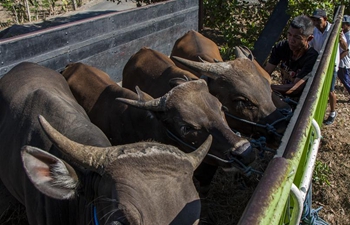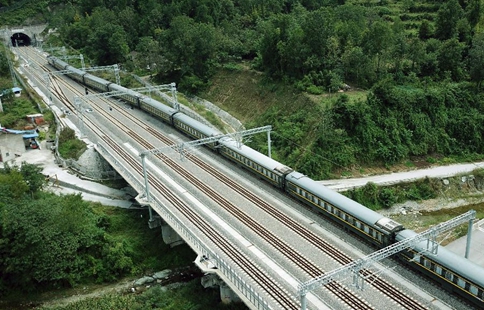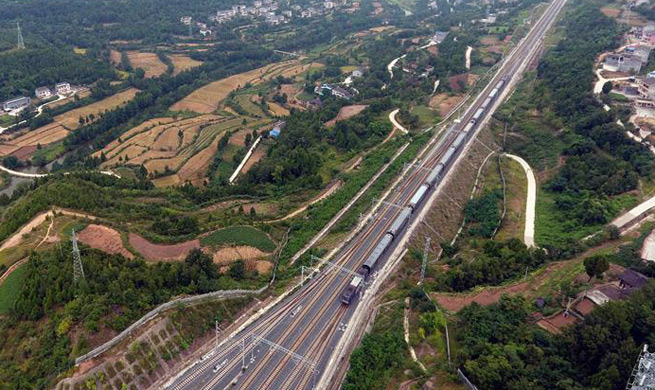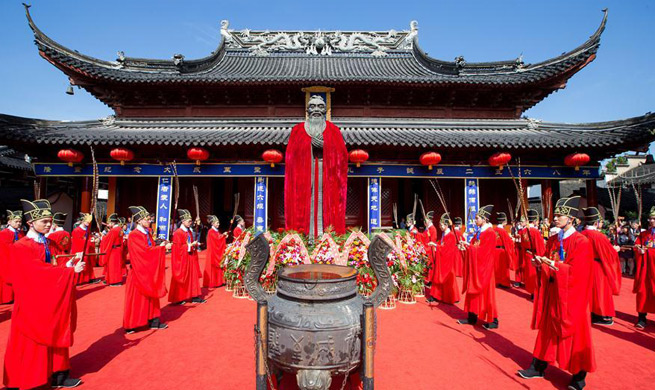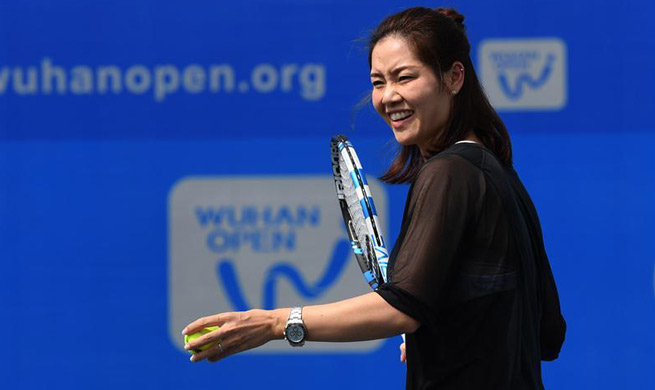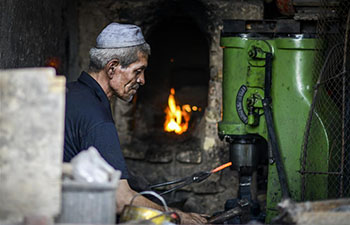TOKYO, Sept. 28 (Xinhua) -- "If you had asked me a few days ago which party I would be voting for in the upcoming general election, I would have reluctantly said the Liberal Democratic Party (LDP), as to be honest there were no viable alternatives," Shin Ikeda, 39, an IT technician living on the outskirts of Tokyo, told Xinhua.
Prime Minister Shinzo Abe earlier on Thursday dissolved the lower chamber of Japan's bicameral parliament and called a general election, as a number of opposition parties have held talks about ways they could collaborate to better take on Abe's ruling coalition.
Ikeda would have certainly not been alone in holding such a view.
The Japanese public fear that should the political landscape remain unchanged, Japan would chart a course towards increased militarism under its hawkish leader.
Under the Abe administration, the so-called "regional threats" have been hyped up to the point that the electorate here would fear not voting for Abe, as Tokyoite and cram school owner Marie Ogawa, 58, explained.
"He (Abe) is a very astute politician and has over the years incrementally leveraged his and his party's position to become somewhat untouchable in terms of being kept in check by opposition parties or carrying out the will of the people," Ogawa said.
"So when the general election that he envisioned took place on Oct. 22, we (the electorate) would have little choice but to vote for the LDP and Abe and a rather uncertain economic and security future, or abstain from voting, which I personally believe is somewhat apathetic and counterintuitive," said Ogawa.
"There simply would not have been an alternative," she added.
The support rate for Abe's Cabinet had seen something of a rebound of late, so the political landscape was seemingly ripe for the prime minister to seek a public mandate on issues pertaining to social welfare and a planned tax hike in 2019, and even public approval on security issues, including a major shift in the nation's defense posture.
According to the latest media polls, although some two-thirds of Japanese voters were opposed to Abe calling a snap election, 27 percent planed to vote for the ruling LDP in proportional representation districts in the lower house election.
This compares to just 8 percent who said they would support the opposition Democratic Party, which has been struggling with disunity in the party ranks and a number of high profile defections, despite new leader Seiji Maehara taking the helm just three weeks ago.
The poll, at the time, also showed that 6.2 percent of voters would opt for a new party, with strong ties to popular Tokyo Governor Yuriko Koike.
"Things were playing nicely into the prime minister's hands at that point in time," said Kohei Ota, 46, a senior manager at a well-known trading house in the capital.
Calling a snap election meant that the hawkish leader could side step allegations facing him about the influence-peddling scandals he had been implicated in, while ushering in his ultimate plans to make the first amendments to the constitution since it was adopted at the end of World War II.
The most significant of these planned amendments points to a pacifist clause that decrees that the "Japanese people forever renounce war as a sovereign right of the nation and the threat or use of force as means of settling international disputes."
The clause also proclaims that "land, sea, and air forces, as well as other war potential, will never be maintained" by Japan.
"Under the current geopolitical climate it is feasible to imagine that Abe would get the support he needs to change the constitution and broaden the role of the Self-Defense Forces, despite this being against popular opinion," Ota, well-versed in such matters, said.
But now has grown a realignment of opposition forces, with the aim of ultimately wrestling power from the LDP and Abe's autocratic grip, to the release of some.
Yuriko Koike, governor of Tokyo, recently launched a new national political party called "Kibou No To," which translates to Party of Hope in English.
The move follows Koike's Tomin First no Kai's (Tokyoites First party) sweeping victory in the Tokyo metropolitan assembly race in July, which saw off challenges from rival parties, including the ruling LDP.
The Tokyo metropolitan assembly race is widely regarded as a barometer for the future direction of national politics and triggered rumors among political insiders that Koike was eyeing a return to national politics after her landslide win.
"And the decision to join forces with the Democratic Party means that people like me, who felt there were no other alternatives to the LDP to vote for in the upcoming general election, now have a lot more to think about," said Ota.
Koike served as a lower house member between 1993 and 2016, at which point she resigned to run in the gubernatorial election and won.
"It will mean we now have a choice when it comes to the polls, which is something we haven't had for a long time under the Abe regime - we have just had a continuation of the status quo, which was heading into dangerous waters, I believe, militarily," said Ota.






